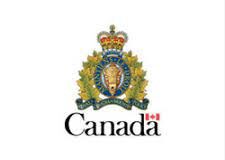COVID-19 Weekly Regional Update
Michelle Pinon
News Advertiser
As of December 21, there were 92,480 total cases in Alberta with 18,311 active cases and 73,298 recovered cases. There were 802 people in hospital, with 152 people in intensive care and 871 deaths.
In Veg/Minburn County, there were 94 cases, 37 active cases, 55 recovered cases and 2 deaths. In Two Hills County, there were 98 cases, 17 active cases, 79 recovered cases, and 2 deaths. In Smoky Lake County, there were 388 cases, 42 active cases, 343 recovered cases, and 3 deaths. In Lamont County, there were 56 cases, 9 active cases, 47 recovered cases, and 0 deaths. In Beaver County East there were 84 cases, 2 active cases, 81 recovered cases, and 1 death. In Beaver County West there were 64 cases, 10 active cases, 53 recovered cases, and 1 death.
During the December 22 provincial update Premier Jason Kenney began by stating, “As you heard, for the upcoming holiday season, we are providing a one-time exemption to the gathering limit for people who live alone.
Between December 23rd and 28th, an individual living alone may join another household for one gathering only during this period. A household must only host a maximum of two people who live alone (not including minors) and only one event.
This approach strives to balance mental wellness for individuals living alone and the need to limit COVID-19 spread.
To be clear: we are providing a five-day window – from Dec. 23 to 28th to accommodate schedules for first responders and others who may work variable shifts. However, an individual living alone may only attend one gathering during this time.
If gathering with someone who is at higher risk of severe outcomes, such as someone over the age of 65 or someone with chronic conditions, please make sure that all gathering safety measures are applied continuously. Please find a way to ensure that that person can participate in the event while still being able to maintain two metres of distance from all others.”
Dr Hinshaw stressed the importance of caring for your own mental health during this time of year.
“It’s normal to feel increased levels of stress during the holiday season, and 2020 has been especially hard on all of us. If you are feeling sad, anxious or upset, this is completely understandable and you are not alone in those feelings.
Looking after our own and each other’s mental health is just as important as washing hands regularly and staying home when sick. If you are struggling, please remember that you are not alone. Confidential, non-judgmental support is available – even over the holidays.
Alberta’s Mental Health Helpline is available 24-7 and offers confidential support for mental health concerns. Alberta’s Addiction Helpline is also available around the clock, and offers confidential support for alcohol, tobacco, drugs and problem gambling. This can also a difficult time for children and youth – and the Kids Help Phone and Alberta Youth Mental Health Hub online are great tools.
And as a reminder, mental health services, including psychiatry, individual and group counselling services, residential addiction treatment, and mutual support groups are not restricted under our current public health orders. They can continue to operate with the appropriate safety protocols in place.”
Health Minister Tyler Shandro stated, “As more vaccines arrive in our province in the coming weeks and months, 2021 promises to be a year filled with hope and relief for Albertans who wish to be immunized against COVID-19. Until we receive enough doses, remember to follow the health measures in place to protect you, your community and our health-care system.”
The Province also reported that, “Alberta received its first Pfizer vaccine shipment of 3,900 doses on Dec. 14. Since then, 3,074 health-care workers have received their first shots. The first phase of vaccine rollout focuses on respiratory therapists, intensive care physicians and staff, and long-term care and designated supportive living facility workers across Alberta.
A total of 25,350 vaccine doses have arrived in the province and will be delivered to vaccine sites around Alberta. Calgary and Edmonton will each receive 6,825 vaccine doses and Red Deer will receive 1,950. The remaining 9,750 Pfizer vaccine doses will be distributed to vaccine sites in Brooks, Camrose, Drumheller, Edson, Fort McMurray, Grande Prairie, Lethbridge, Medicine Hat, Pincher Creek, and St. Paul. Each of these 10 communities will receive 975 doses.”
On December 20 Dr Hinshaw addressed the question of whether individuals who have tested positive and gone into isolation need to be re-tested and get a negative result before returning to work or normal activities.
“Again, the answer is no. If you test positive and isolate for the required, mandatory period, there is no need to be tested again.
Evidence is clear that unless an individual has an immune compromising condition, they are not infectious to others after 10 days have passed from the start of their symptoms, as long as their symptoms have resolved.
Re-testing someone within 90 days of a positive test is not effective or appropriate unless this test is ordered by their doctor.
It also is not an effective use of our lab teams, who could be spending their time and energy testing people who have COVID symptoms, or who are linked to an outbreak or who are a close contact of a confirmed case.
For employers seeking clarity around when staff can return to work, AHS does provide a text message to anyone who tests positive at the point in time when their isolation period is over and it is safe for them to get back to work.
On a related point, I also want to remind employers whose staff have tested positive, or who are a close contact of a case, that these staff are legally required to isolate at home until their isolation or quarantine period has ended. They should not be pressured to return to work before this time, as this puts everyone in the workplace at risk.”
Dr Hinshaw also discussed the federal government’s decision to restrict all incoming flights from the United Kingdom for 72 hours in response to a genetic variant of the virus that causes COVID-19 which is currently circulating in the UK.
“At this time, this variant appears to be more easily transmitted from person to person, meaning it can possibly spread more widely in an exposed group of people.
While this is not fully confirmed, there is sufficient evidence to prompt action on this development. It is important to know that, at this time, the variant does not appear to cause more severe symptoms. It does not impact how the body responds to the virus, the lab testing performance, or the effectiveness of the COVID-19 vaccines.
The Public Health Agency of Canada is monitoring the situation closely. They are working with various international partners, including the World Health Organization, to better understand this variant and its impacts, and to do ongoing assessment regarding interactions between the vaccine, lab tests and this variant.
So far, no variants with the same set of mutations have been identified in Canada. The measures we already have in place to limit the spread of COVID-19 work against this variant as well. It is not uncommon for new strains of viruses to emerge from time to time. However, we are taking this seriously.
That’s why we are asking any travellers who arrived from the United Kingdom within the past 14 days to immediately get tested for COVID-19 if they have not already done so. This is recommended even if these travellers do not have symptoms. Alberta Health Services will be contacting all travellers in this category and offering testing appointments.
As a reminder, quarantine is required for 14 days after arrival from anywhere outside Canada, unless individuals are participating in our border pilot project.
However, any travellers from the UK in the last 14 days who are participating in the border pilot must also immediately quarantine at this time, even if they have had a negative test.
As always, I would ask that all Albertans show kindness and support for anyone who’s returned from the UK or who is impacted by this call for testing.
These individuals have done nothing wrong. Getting tested does not mean that they are automatically at risk. We are being cautious to help protect our communities’ health.
This new strain is yet another reminder that we cannot let our guard down with COVID-19. This is a challenging and evolving virus, and it can and will spread quickly if given the chance.”






